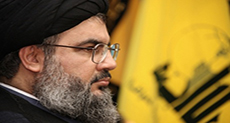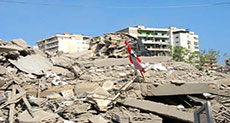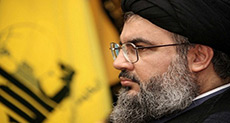How hi-tech Hizbullah called the shots
Source: financialexpress, 18-10-2006
Beirut - Hizbullah`s ability to repel the "Israeli" Army during the recent conflict was largely due to its use of intelligence techniques (believed to be) gleaned from allies Iran and Syria that allowed it to monitor encoded "Israeli" communications relating to battlefield actions, according to "Israeli" officials, whose claims have been independently corroborated by the US Central Intelligence Agency (CIA).
"`Israeli` EW [electronic warfare] systems were unable to jam the systems at the Iranian Embassy in Beirut, they proved unable to jam Hizbullah`s command and control links from Lebanon to Iranian facilities in Syria, they blocked the Barak ship anti-missile systems, and they hacked into "Israeli" operations communications in the field," Richard Sale, the longtime intelligence editor for United Press International, who was alerted to this intelligence failure by current and former CIA officials, told Asia Times Online.
The ability to hack into "Israel's" military communications gave Hizbullah a decisive battlefield advantage, aside from allowing it to dominate the media war by repeatedly intercepting reports of the casualties it had inflicted and announcing them through its television station, Al-Manar. Al-Manar`s general director, Abdallah Kassir, would not comment on the information-gathering methods that had allowed it to preempt "Israel's" casualty announcements, but he admitted he was in constant contact with Hizbullah`s military wing.
When "Israeli" troops invaded southern Lebanon, they found themselves bogged down in stronger-than-expected Hizbullah resistance. The story of the handful of Hizbullah militants who single-handedly defended the border village of Aita Shaab has already become legend. Ultimately, "Israel" decided that the only way to neutralise them was to carpet-bomb the village, reducing it to rubble in the process.
Part of the reason for Hizbullah`s decisive battlefield performance was that it was gleaning valuable information by monitoring telephone conversations in Hebrew between "Israeli" reservists and their families on their personal mobile phones.
"If an enemy sets up a small group of EW people familiar with the terrain and reasonably aware of the current tactical situation, a stream of in-the-clear calls could have been a gold mine of information mentioned inadvertently," said Sale, quoting a CIA official.
A London Sunday Times article titled "Humbling of the super-troops shatters `Israeli` army morale" reported the story last week. It stated that Hizbullah was "able to crack the codes and follow the fast-changing frequencies of `Israeli` radio communications, intercepting reports of the casualties they had inflicted again and again".
The development marks a potential turning point in the region`s strategic balance. Hizbullah`s ability to repel "Israel's" elite troops marked the first time that an Arab force had frustrated a concerted invasion scenario by "Israel". This has led to a concerted rethink on the part of the "Israeli" leadership, in which it is being assisted by American experts, according to "Israeli" intelligence website DEBKAfile.
It adds that the American experts are particularly focused on how (so-called) Iranian EW installed in Lebanese army coastal radar stations blocked the Barak anti-missile missiles aboard "Israeli" warships, allowing Hizbullah to hit at least one "Israeli" corvette, the Hanith.
"Assuming that these capabilities came from Syria and Iran, most probably by way of Russia and China, one would have to believe that both the US and "Israel" have learned from the experience, and that leaning process will be applied in future conflicts," said Robert Freedman, Peggy Meyerhoff Pearlstone professor of political science at the Baltimore Hebrew University.
The Debka article also claims that Hizbullah secretary General Hassan Nasrallah was hosted throughout the war in an underground war-room beneath the Iranian Embassy in Beirut.(!?) Iranian involvement was suspected throughout the conflict, and a captured Hizbullah guerrilla confessed on "Israeli" television to have visited Iran for training. The most able and committed Hizbullah guerrillas usually visit Iran for religious indoctrination and training in the firing of non-Katyusha rocketry.
"It [the technological breakthrough] may mean that the US and `Israel` no longer have the ability to operate at lower levels of violence on a supreme basis," said a Middle East analyst. "The playing field is more leveled. This may mean more diplomacy or it may mean more, and more concentrated, violence."
Iran and Syria advanced their SIGINT (SIGnals INTelligence - intelligence-gathering by interception of signals) cooperation last November, as part of a joint strategic defense cooperation accord aimed at consolidating the strategic aspect of their long-term alliance. Aside from being an invaluable help to Hizbullah, the ability to read "Israeli" and US codes could aid Iran in monitoring US movements in Iraq and Afghanistan.
"It goes to the heart of one of the factors ... routinely regarded as one of the clear advantages for all First World versus Third World nations or forces - electronic warfare and secure communications," said Gary Sick, who was national security adviser under US president Jimmy Carter. "We are supposed to be able to read and interfere with their communications, not vice versa. A lot of calculations are based on that premise."
(Iason Athanasiadis is an Iran-based correspondent.)




